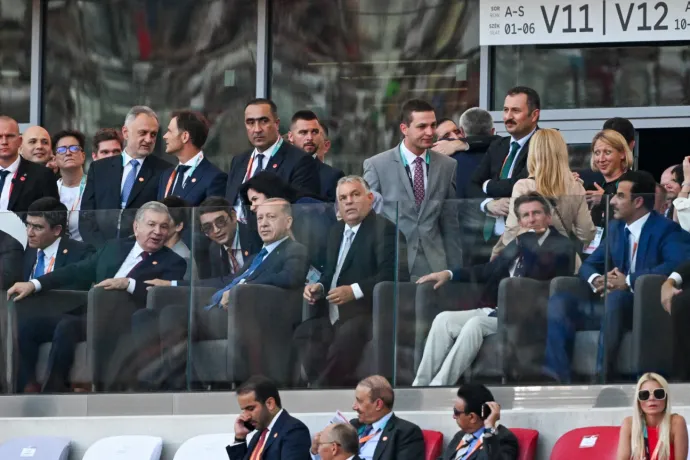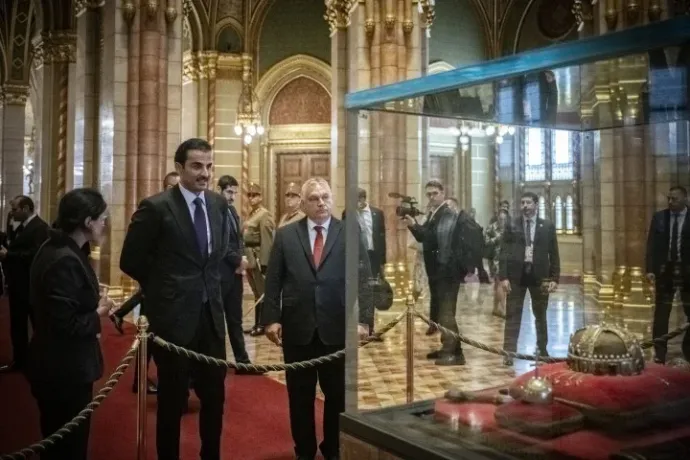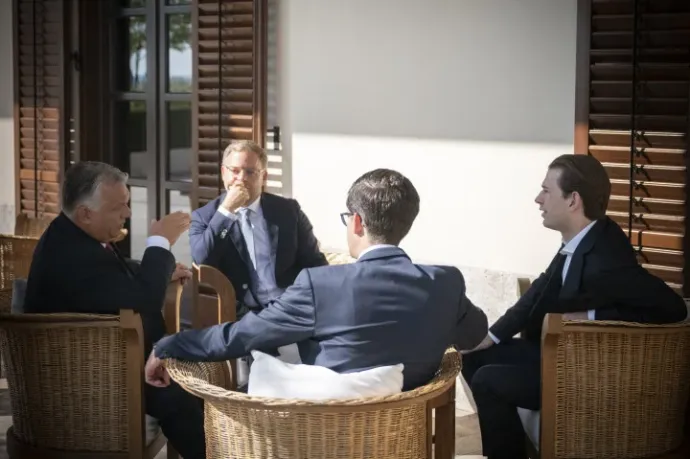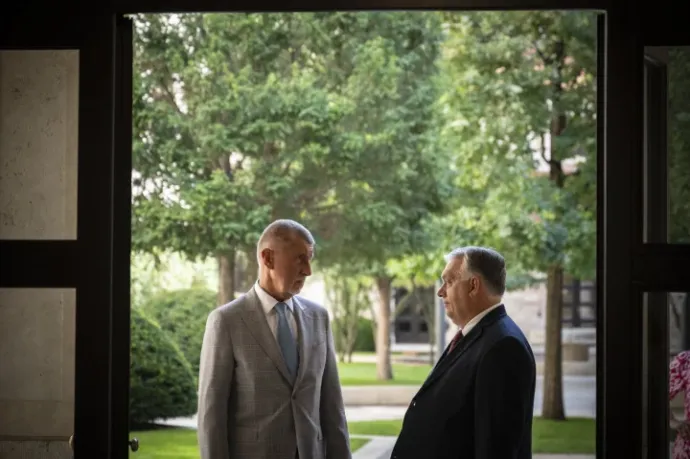
The way this happens – and I myself have been part of such things – is that when there is a big world event, a country invites its friends or welcomes all those who are interested
– Hungarian Prime Minister Viktor Orbán said on Sunday on public radio, explaining the significance of the foreign leaders and politicians who attended the opening ceremony of the World Athletics Championships. Many of them later attended the viewing of the 20 August fireworks at Orbán's office, and also had bilateral meetings with the Hungarian Prime Minister. The distinguished participants of the ceremonial-diplomatic works of the recent days were as follows:
- Recep Tayyip Erdoğan, President of Turkey
- Ilham Aliyev, President of Azerbaijan
- Shavkat Mirziyoyev, President of Uzbekistan
- Tamim bin Hamad al-Sani, Emir of Qatar
- Sadyr Japarov, Kyrgizistan’s Head of State
- Aleksandar Vučić, President of Serbia
- Serdar Berdimuhamedow, President of Turkmenistan
- Milorad Dodik, President of the Republic of Srpska, the Serbian-majority entity of Bosnia-Herzegovina
- Andrej Babiš, former Prime Minister of the Czech Republic
- Sebastian Kurz, former Austrian Chancellor
- and Rustam Minnikhanov, Head of Tatarstan, a member state of the Russian Federation
By using the term "friend", the Prime Minister was clearly suggesting that this was a community based on shared values, and that we have a good relationship with the invited guests. As if the provincial governor of Tatarstan, accused of war crimes, the influential Arab Emir of Qatar or the failed Prime Minister of the Czech Republic represented some kind of antithesis, a shared identity, to our actual allies, the members of NATO and the European Union, the so-called "Western" countries, whose diplomats remained absent.

Based on the list of invited guests, the American news agency AP noted that Hungary's "diplomatic mega-event", which hummed along without the country's Western allies, “reflects Orbán's push to increase diplomatic and political cooperation with autocracies in the Balkans and Asia.” The list is indeed a weighty one: based on the Economist's benchmark Democracy Index, the economic portal G7 found that of the 8 heads of state who partied at the former Carmelite Monastery:
- five are running an authoritarian regime – for example, the Central Asian state that the Turkmen leader Serdar Berdimuhamedow inherited from his father is consistently ranked among the 10 least democratic states in the world. And Shavkat Mirziyoyev, who came to power in Uzbekistan in 2016 after his predecessor's death, was personally responsible for child slavery in the cotton industry in the 2010s, while his cautious reforms were cut short by a bloody crackdown on autonomy protests in Karakalpakstan.
- one – Recep Tayyip Erdoğan – is leading a 'hybrid regime' (the only NATO member state represented at the weekend) which is considered one step better than authoritarianism. Perhaps the Turkish President needs the least introduction; since the 2016 coup attempt – the details of which remain unclear to this day – his regime has been responsible for the imprisonment of hundreds of journalists, academics and politicians, the torture and murder of representatives of the Kurdish minority, while the Islamist militias in Syria, which he has financed and supported, have been deeply involved in the persecution of local Christian communities and the destruction of their places of worship – although Hungary's State Secretariat for Assisting Persecuted Christians has not spoken up for them.
- two of them – Viktor Orbán and Serbian President Aleksandar Vućić – are heading up so-called "flawed democracies".
The leaders of non-sovereign states who were present don't exactly improve the quality of the list when it comes to democracy and the rule of law either: the President of Tatarstan, which belongs to Russia, Rustam Minnikhanov, only escaped EU sanctions thanks to Hungarian pressure. He earned his place on the list of those sanctioned with his active involvement in the deportation of hundreds of thousands of Ukrainian children. And the President of the Republic of Srpska (i.e. the Serb-majority republic of Bosnia, which consists of two separate entities), Milorad Dodik, a liberal-turned-Putin-loving nationalist, is openly working to undermine the 1995 Dayton peace agreement that ended the Bosnian civil war and to cripple the functioning of the federal state – and is doing so with the economic and diplomatic support of the Hungarian government.
The former heads of state invited are also not among Europe's debatable one-time leaders either: former Austrian Chancellor Sebastian Kurz was investigated by the Austrian authorities for bribery and misappropriation of funds, and just last week he was indicted for perjury. Billionaire Czech ex-president Andrej Babiš, who lost the presidential election in January, was acquitted in a case involving EU subsidies, but the Czech legislature tightened the law on conflict of interest in August, precisely on account of his extensive economic interests and connections.


The meetings and their coverage in the media and on social platforms were intended to emphasize Orbán's diplomatic inescapability, to create the illusion that "the whole world is visiting Hungary". It is thanks to this ambition that the Prime Minister pompously posted about his meeting with Kurz as a "Hungarian-Austrian summit", even though Kurz currently has relatively little political influence in his country. Having retired from politics at the end of 2021, he moved to California with his family and started working for the far-right tech billionaire Peter Thiel.
It is worth noting, however, that of all the leaders, Minnikhanov is perhaps the only one regarded as a pariah. Tamim bin Hamad al Thani is an ally of the United States, and despite the massive corruption surrounding the Qatar football World Cup and Qatar's dubious dealings with the world, is a respected international statesman – his reputation is greatly enhanced by Qatar's natural gas wealth, which not only Hungary but also Germany is keen to buy.
Natural gas is in fact the link that connects Orbán's guests, with Azerbaijan being one of the EU's main prospective suppliers alongside Qatar – and the Hungarian Prime Minister has agreed with Aliyev to buy 100 million cubic metres of natural gas. On the other hand, Politico points out that while even Ursula von der Leyen has had to make nice with the Azerbaijani leader, August 2023 is not the right time to be friendly, as more and more reports of abuse against the Armenian population have been coming from the territories annexed after the Nagorno-Karabakh war in 2020, which the European Parliament is looking to penalize with sanctions against the Azerbaijani elite.
For more quick, accurate and impartial news from and about Hungary, subscribe to the Telex English newsletter!